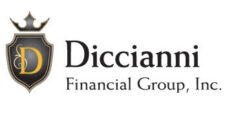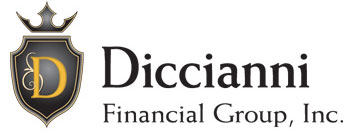Over the past few years, a new four letter word has emerged; bank. The mere mention of an, ahem…, bank conjures up a multitude of reactions, few of which are good. Given the current state of our economy, the bad press is not all unwarranted. When Bank of America announced in October that beginning in 2012 they planned to charge a $5.00 monthly fee to customers who use their bank cards at retail locations, it incited another round of negative press. The other big players, J.P. Morgan Chase, Wells Fargo and Citigroup, were already testing debit card usage fees in certain markets and were prepared to jump on board with similar fee hikes to the consumer.
Growing Discord
It was just a few short years ago that taxpayer funds were used to sure up a financial industry hovering on the brink of collapse. The target of America’s latest indignation, Bank of America, was on the receiving end of $45 billion dollars of the allotted bail out money. As a way of saying “thank you” for the life saving intervention, the banking industry has repeatedly slapped the consumer and taxpayer in the face with such obscenities as outrageous employee bonus’s, downsizing jobs at a time when some banks were reporting record profits, not loaning money, and the continued stream of increasing fees. The shoddy banking practices that contributed to the economy’s malaise seemed for many to have been met with a lack of contrition.
Don’t Blame Us
The legitimacy of the fee hikes lies in eyes of the beholder. While banks and some factions of our political system cite the price hikes as a repercussion of the newly enacted Dodd-Frank Act, others feel that the Act designed to protect consumers has been exploited at the cost of the consumer. The banks claim that the restrictions of the Dodd-Frank act will lead to a loss of $2 billion in profits per year. However, recent calculations have shown that the enactment of the new card usage fee will reap Bank of America $3 billion in profits per year, or an additional $1billion from what they currently collect from debit card fees.
What’s a Consumer to Do?
Customer backlash has forced many banks to do an abrupt about face on the proposed banking card fees. Client complaints, along with a growing exodus out the bank’s revolving doors, have led the big players to revisit their policy. For some customers, the enactment of the new fees was not worth the headache of switching banks. For others, either for ideological or financial reasons, it was. For those unemployed, underemployed, living on a fixed income or a student, the additional $60 a year for the privilege of accessing their money proved to be a deal breaker. Though the banks have retreated for now, it is only a matter of time before new fees quietly creep in somewhere else. For those who may be growing tired of the constant barrage of game changers, you do have options. Many consumers are beginning to explore the advantages of small banks, online banks, and Credit Unions.
Local or Smaller Banks
Many smaller and local banks have been able to fight the onslaught of the nickel and dime trend in the banking industry. This is partly due to the fact that financial institutions with less than $10 billion in assets are not subject to the federal caps on debit card swipe fees. Many community banks typically fall far below this $10 billion dollar figure. In addition, according to the Independent Community Bankers of America, community banks fund nearly 60 percent of small businesses under $1 million dollars. Community banks also rank high in customer service and satisfaction. This level of service is credited to the management and employees being part of the same community in which they service. The draw back of a small institution is that bank branches and ATM networks do not have a large reach beyond their immediate community. For any consumer who travels frequently for work or pleasure, this may not be the best fit. To find a list of community banks in your area, search the Independent Community Banker of America website at http://www.icba.org/.
Online Banking
Internet banks offer benefits that you cannot find in a brick and mortar institution. Because they have little overhead, low fees and higher rates is the hallmark. If you are already using direct deposit, switching to an internet bank would be an easy transition. Problems can arise if you commonly deposit cash or checks into your bank account. For some internet banks, this can only be done with special mail-in envelopes. Others use virtual deposits that allow for a picture of the check to be taken on a smart phone or other electronic device. For those who are not techies, this may not be the answer for you. But for those who are, a number of online banks offer features like free banking, free ATM transactions anywhere in the United States, and excellent interest rates on deposits. Some internet banks worth checking out are Ally Bank http://www.ally.com/, The Incredible Bank http://incrediblebank.com/, and Capital One 360 https://home.capitalone360.com/.
Credit Unions
Thanks to the complexities and costs of traditional big banks, business at credit unions is booming. The Credit Union National Association has reported an increase in inquiries and account openings in the weeks following the announcement of the new debit card fees. Part of the success in keeping fees low and providing higher yields comes from the fact that credit unions are non-profit and members are part owners. Instead of profits going to a few shareholders, profits are passed on to members in the form of low costs and competitive rates. All federally chartered credit unions, and most state chartered credit unions, insure deposits up to $250,000, the same as federally chartered banks. Because many credit unions have loosened their strict requirements, it is much easier to become a member. The National Credit Union Association website at http://www.ncua.gov/ can help in the search of a credit union close to you. The downside of credit unions is the same as small community banks. Hours, locations, and ATM networks and services can be more limited than those of larger institutions.
Choosing to stay with a larger bank or switching to a community bank, internet bank, or credit union is a very individual choice. If you do decide to switch, thoroughly research the pros and cons of all choices and calculate exactly how much convenience you will need to give up compared to the amount saved in fees. Until big banks begin to put the needs of consumers before stockholders, the client can expect to continue to be nickel and dimed. Know that as the consumer, you are not held hostage. You have options.
Contact us for a full evaluation of your financial situation so you can fully understand the best options for you.

